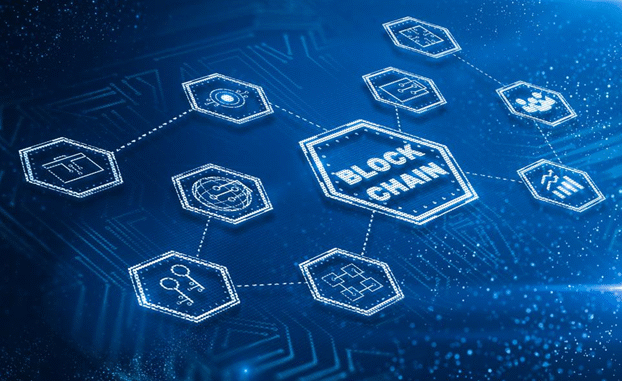
Blockchain Beyond Cryptocurrency: Real-World Applications Explained
When most people hear the word “blockchain,” they immediately think of Bitcoin and other cryptocurrencies. While blockchain does serve as the underlying technology for digital currencies, its potential goes far beyond finance. In 2025, blockchain is transforming industries such as healthcare, logistics, energy, and even voting systems by offering transparency, security, and decentralization.
In this article, we will demystify blockchain technology and explore its most impactful real-world applications beyond cryptocurrency.
What Is Blockchain? A Quick Overview
At its core, a blockchain is a decentralized, distributed digital ledger. It records transactions across multiple computers in a way that ensures the data is immutable and secure.
Each record, or “block,” is linked to the previous one, forming a “chain” of blocks. These blocks are:
- Time-stamped
- Cryptographically secured
- Transparent and verifiable
Because there’s no central authority, blockchain offers trustless transactions, meaning participants don’t need to rely on a third party to validate actions.
1. Supply Chain Management
✅ Real-World Problem:
Traditional supply chains suffer from inefficiencies, fraud, and lack of transparency.
🔍 Blockchain Solution:
Blockchain allows all participants in a supply chain—from manufacturers to retailers—to access a single source of truth. Every transaction or movement of goods is recorded on a shared, immutable ledger.
💡 Use Cases:
- Walmart uses blockchain to track the origin of produce, reducing food contamination risks.
- IBM and Maersk have built TradeLens, a blockchain platform to digitize global shipping logistics.
🚀 Benefits:
- Real-time tracking
- Elimination of intermediaries
- Reduced fraud and theft
- Enhanced inventory management
2. Healthcare and Medical Records
✅ Real-World Problem:
Patient data is scattered across providers, creating gaps in care and vulnerabilities in privacy.
🔍 Blockchain Solution:
Blockchain offers a secure, interoperable system for managing Electronic Health Records (EHRs). Patients can control access to their data and share it with doctors when needed.
💡 Use Cases:
- MedRec is a prototype system that stores patient records using blockchain to ensure privacy and access control.
- BurstIQ enables secure exchange of personal health data between individuals and healthcare providers.
🚀 Benefits:
- Improved data security and privacy
- Better patient care through unified records
- Reduced administrative costs
3. Digital Identity Verification
✅ Real-World Problem:
Identity theft, fake documents, and inefficient verification systems plague both online and offline services.
🔍 Blockchain Solution:
A decentralized digital identity stored on blockchain allows individuals to own and control their identity, rather than relying on centralized databases.
💡 Use Cases:
- Microsoft’s ION project on Bitcoin’s blockchain is building decentralized identifiers (DIDs).
- Civic offers secure login systems without usernames or passwords using blockchain identity.
🚀 Benefits:
- User-controlled personal data
- Streamlined KYC (Know Your Customer) processes
- Protection against identity theft
4. Real Estate and Property Transactions
✅ Real-World Problem:
Real estate deals are often slow, expensive, and riddled with paperwork.
🔍 Blockchain Solution:
Blockchain simplifies buying, selling, and leasing properties by digitizing contracts and enabling peer-to-peer transactions.
💡 Use Cases:
- Propy facilitates real estate transactions on blockchain, including property title transfers.
- Governments in countries like Sweden and Georgia are testing land registries based on blockchain.
🚀 Benefits:
- Fraud-proof property records
- Faster transactions
- Reduced legal and administrative fees
5. Voting and Elections
✅ Real-World Problem:
Traditional voting systems are vulnerable to manipulation, fraud, and low transparency.
🔍 Blockchain Solution:
Blockchain can offer secure, transparent, and tamper-proof voting systems. Each vote is recorded as a unique transaction, verifiable by all participants.
💡 Use Cases:
- Voatz, a U.S.-based app, has enabled blockchain voting in pilot elections.
- Estonia, a leader in digital governance, is exploring blockchain for e-voting.
🚀 Benefits:
- Enhanced voter trust
- Increased turnout through remote voting
- Immutable vote records
6. Intellectual Property and Copyright Protection
✅ Real-World Problem:
Creators often struggle to prove ownership and receive fair compensation for their work.
🔍 Blockchain Solution:
Blockchain can timestamp creative work, establishing indisputable proof of ownership. Smart contracts can automate royalty payments.
💡 Use Cases:
- Ascribe allows artists to register and track digital art ownership on blockchain.
- Audius is a decentralized music streaming service paying artists directly via smart contracts.
🚀 Benefits:
- Fair and transparent royalty distribution
- Protection against piracy
- Proof of creation and originality
7. Insurance and Smart Contracts
✅ Real-World Problem:
Traditional insurance claims are slow, complex, and prone to fraud.
🔍 Blockchain Solution:
Smart contracts—self-executing contracts coded into the blockchain—automatically process claims based on preset conditions.
💡 Use Cases:
- Etherisc uses blockchain for decentralized insurance applications like flight delay coverage.
- AXA has tested smart contracts to automate travel insurance payouts.
🚀 Benefits:
- Reduced processing time
- Lower administrative costs
- Enhanced fraud prevention
8. Education and Credential Verification
✅ Real-World Problem:
Fake diplomas and difficulty in verifying educational qualifications.
🔍 Blockchain Solution:
Educational institutions can issue certificates on blockchain that are instantly verifiable by employers or other schools.
💡 Use Cases:
- MIT issues blockchain-based diplomas that graduates can share digitally.
- Blockcerts is an open standard for blockchain credentials used globally.
🚀 Benefits:
- Verifiable, tamper-proof credentials
- Simplified background checks
- Global acceptance of certifications
9. Energy Sector and Peer-to-Peer Trading
✅ Real-World Problem:
Centralized utilities and outdated grids make energy distribution inefficient.
🔍 Blockchain Solution:
Blockchain enables decentralized energy trading, where individuals can sell surplus solar power to neighbors without a utility company.
💡 Use Cases:
- Power Ledger allows peer-to-peer energy trading using blockchain in Australia and beyond.
- Brooklyn Microgrid is a community project allowing residents to buy and sell energy locally.
🚀 Benefits:
- Empowered consumers
- Reduced grid stress
- Incentives for renewable energy
10. Charities and Transparent Donations
✅ Real-World Problem:
Lack of transparency in how donations are used discourages people from giving.
🔍 Blockchain Solution:
Donations can be tracked on blockchain, ensuring they reach the intended recipients.
💡 Use Cases:
- Binance Charity Foundation uses blockchain to show donation paths.
- GiveTrack by BitGive offers transparency in charitable giving with real-time tracking.
🚀 Benefits:
- Increased donor trust
- Fraud prevention
- Better impact reporting
Challenges to Adoption
Despite its promise, blockchain technology still faces several barriers:
- Scalability: Current blockchain networks can struggle with high transaction volumes.
- Regulation: Governments are still figuring out how to regulate blockchain applications.
- Energy Consumption: Some blockchain models (like proof-of-work) consume significant energy.
- User Adoption: There’s a learning curve and lack of user-friendly interfaces.
However, with continued innovation and regulation, these hurdles are being actively addressed.
Conclusion
Blockchain is no longer just about cryptocurrency. From supply chains to healthcare, and from voting to energy, its applications are vast and impactful. In 2025, we are witnessing blockchain evolve into a foundational technology across industries, enabling greater transparency, security, and decentralization.
As more organizations and governments explore blockchain, now is the time for individuals and businesses to understand its capabilities and consider how it can benefit their operations or daily lives.
Blockchain is not just changing how we exchange money—it’s changing how we exchange trust.

